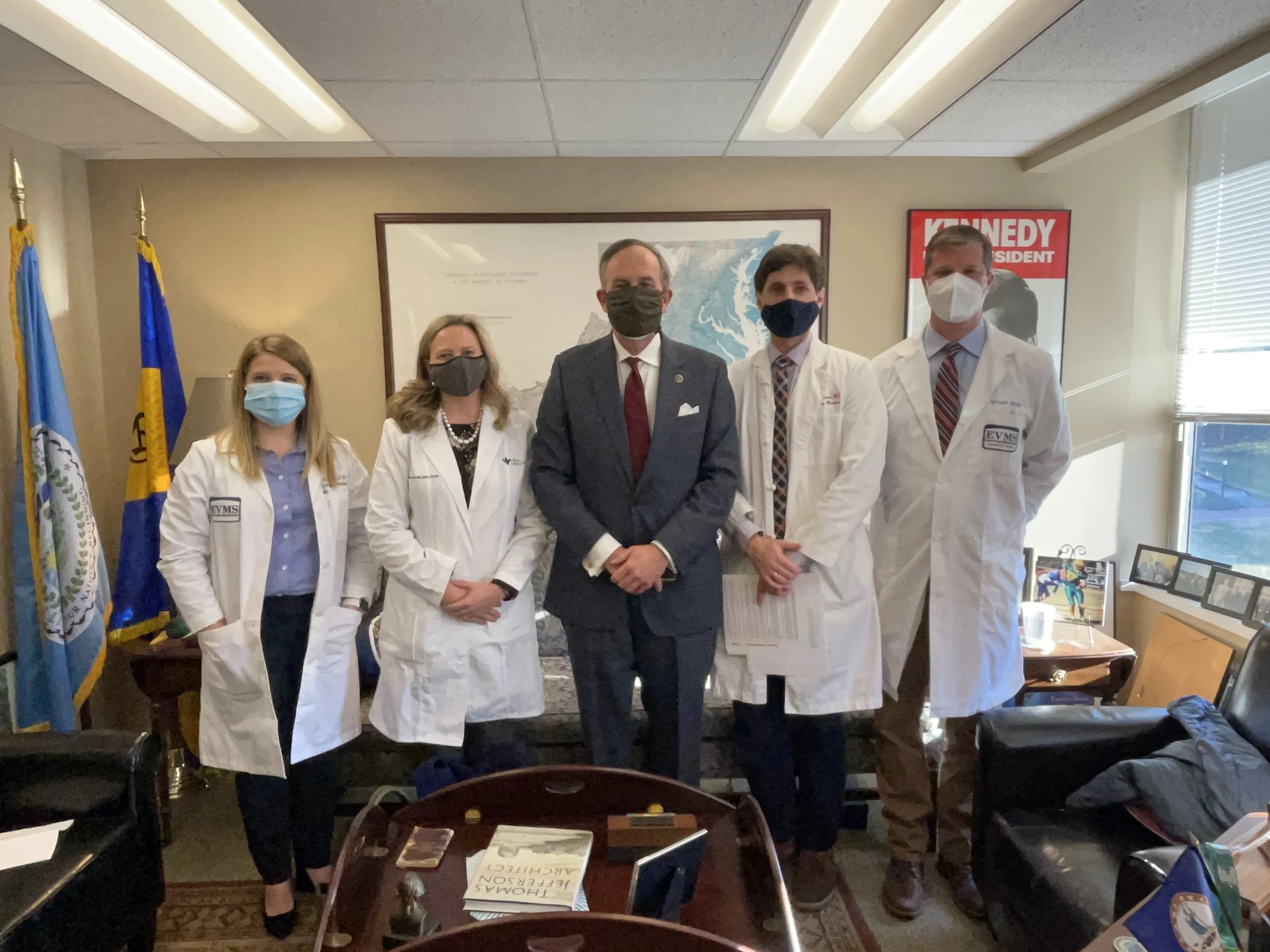Darwin Castillo talks VACEP Leadership & Advocacy Fellowship
With applications open for our 2022-2023 Leadership & Advocacy Fellowship, we’re talking to the most recent cohort about their experiences. If you are, or know of, an early-career emergency physician, consider applying to the “L&A” Fellowship.
One of our five 2021-2022 Leadership & Advocacy Fellows, Darwin Castillo, MD, MBA, FACEP is a former Major in the U.S. Air Force. He volunteered on many humanitarian missions and completed an MBA with a healthcare focus. He joined the fellowship after witnessing the COVID-19 pandemic further reveal the many difficulties emergency physicians face, and the urgent need for change throughout the healthcare system.
Castillo, at left, at the 2021 Leadership & Advocacy Conference in Washington.
VACEP: What was the biggest takeaway you learned during the course of your Fellowship?
Castillo: Advocating for emergency medicine physicians and patients seeking emergency care is essential in a rapidly changing medical landscape. As private equity in medicine grows, staffing decreases and as external forces seek to cut costs and place additional burdens on emergency departments, the opinions of EM physicians in the state and federal legislative process are often silenced. The VACEP Fellowship has introduced ways to support the safety net of American medical care by helping voice the concerns of EM physicians and their patients. During my time in the Fellowship, I was thankful to see legislative change on the state level through the establishing of strict standards on Advanced Practice Provider scope of practice and on the national level regarding the need for a fair arbitration process between insurers and physicians.
Podcast: Darwin Castillo on Human Trafficking Experience
Dr. Castillo spoke with VACEP last year about his experiences in Nicaragua, treating victims of human trafficking. Listen to it here.
What was the top challenge or obstacle in your Fellowship project or research area, and how did you overcome it?
My project involved the prevention of workplace violence in healthcare settings. One of the main challenges was first formally identifying the common obstacles emergency departments faced when dealing with workplace violence.
With such diversity in Virginia, such as the more rural southwestern regions in contrast to the northeastern region near Washington, D.C., each emergency department had varying needs, resources, and encountered different hardships.
By integrating ACEP’s data on workplace violence, identifying state ACEP chapters with similar demographics and utilizing data from other groups with similar challenges, such as the Emergency Nurses Association, a more cohesive data set was developed to determine a more precise course of action in congruence with the Virginia Hospital and Healthcare Association.
How will you incorporate what you learned into your own EM practice?
The VACEP Fellowship has helped in my development as an EM physician and leader. On a patient level, I am easily able to prescribe buprenorphine using the X-waiver to help those with opiate addiction, have ample resources for identifying and managing human trafficking victims, and have greater support when navigating the Temporary Detention Order process for involuntary psychiatric patients.
When listening to a patient’s needs and hearing the common challenges my colleagues face, I now try to identify ways that hospital policies and legislation can help alleviate administrative burdens while also protecting the welfare of patients and providers. Understanding these challenges, I have the means to promote and lead change by introducing solutions to my local congressmen and senators with the support of Virginia EM physicians willing to do the same.
What would you say to a fellow emergency physician interested in applying for the Fellowship?
As EM physicians, health care issue experts, and constituents, we have a unique story to share. We are often the first line of defense and are valued experts in Richmond and Washington, D.C., where critical state and federal legislation are considered.
The VACEP Fellowship can help you communicate your distinct perspective as an EM physician and present issues to legislators that may have otherwise not been heard. You also have the opportunity to build relationships with other EM physicians and legislators eager to advocate for your colleagues and patients.





